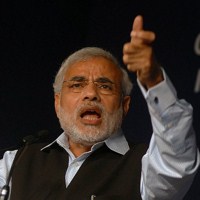In the aftermath of the Indian elections, President Barack Obama expressed his desire for rejuvenating the U.S. relationship with India, which is still seen as a linchpin for America’s rebalance to Asia. But at present Obama is not scheduled to meet with India’s newly elected prime minister, Narendra Modi, until the East Asia summit in Myanmar in November, and again at the G-20 conclave later that month in Brisbane, Australia.
But if last year’s G-20 meeting in St. Petersburg is any guide, the U.S. president will have a full dance card at these two multilateral meetings and will not, in all likelihood, have the time for in-depth, one-on-one exchanges—particularly when there are serious grievances on the table, such as trying to resolve serious differences over whether or not military intervention would be justified in Syria.
Furthermore, attempting to conduct serious diplomacy in the brief moments between sessions tends not to be effective, as illustrated by Obama’s failed efforts, also at the St. Petersburg meeting, to assuage Brazilian President Dilma Rousseff’s anger over revelations of U.S. spying on Brazilian officials. Whatever was said during the hastily convened ad hoc meeting and stroll prior to the summit’s official welcome dinner had little effect: Rousseff subsequently “postponed” her state visit to Washington planned for later that year.

